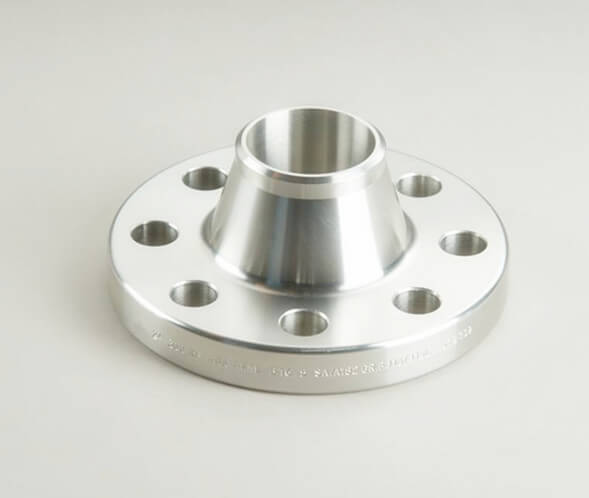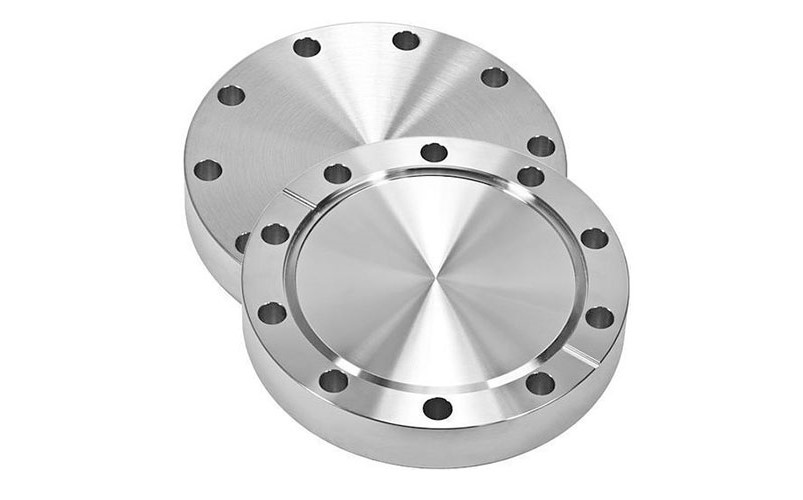

TITANIUM FLANGE


TITANIUM FLANGE
When it comes to industrial applications, using the right materials is essential for ensuring safety, efficiency and reliability. One such material that has gained popularity in recent years is Hastelloy, known for its excellent resistance to corrosion, high-temperature stability and strength. Hastelloy flanges, in particular, are highly sought-after in industries such as chemical processing, oil and gas, and pharmaceuticals due to their ability to withstand harsh environments and extreme conditions. But what exactly makes Hastelloy flanges so special?
We'll delve deeper into the benefits of using Hastelloy flanges for industrial applications, and explore why they are the material of choice for many companies operating in harsh and corrosive environments. So, whether you're a seasoned industrial professional or just starting out in the field, read on to discover the advantages of using Hastelloy flanges for your next project.
We manufacture Titanium flanges in the following grades:
| Titanium ASME/ANSI B 16.5 | Welding Neck Flange, Slip on Flange, Blind Flange, High Hub Blind Flange, Socket Weld Flange, Lap Joint Flange, Threaded Flange, Ring Type Joint Flange |
| Titanium PRESSURE CLASS | 150, 300, 400, 600, 900, 1500, 2500 |
| Titanium ASME/ANSI B 16.47 | Welding Neck Flange, Blind Flange [Series A & B] |
| Titanium PRESSURE CLASS | 75, 150, 300, 400, 600, 900 |
| Titanium ASME/ANSI B 16.36 | Welding Neck Flange, Slip on Flange, Threaded Flange |
| Titanium PRESSURE CLASS | 300, 400, 600, 900, 1500, 2500 |
| Titanium BS 4504 SEC 3.1 | Welding Neck Flange, Hubbed Slip on Flange, Hubbed Threaded Flange, Lapped Pipe End Flange, Plate Flange, Loose Plate Flange, Loose Plate With Weld Neck Flange, Blank Flange |
| Titanium PRESSURE CLASS | PN 2.5 TO PN 40 |
| Titanium BS 4504[PART 1] | Welding Neck Flange, Hubbed Slip-On Hubbed Threaded, Plate Flange, Loose Plate With Weld On Plate Collar, Blank Flange |
| Titanium PRESSURE CLASS | PN 2.5 TO PN 400 |
| Titanium BS 1560 BOSS | Welding Neck Flange, Socket Welding Flange, Slip-On Flange, Blind Flange, Screwed Boss Flange, Lapped Flange |
| Titanium PRESSURE CLASS | 150, 300, 400, 600, 900, 1500, 2500 |
| Titanium BS10 | Welding Neck Flange, Plate Slip-On Flange, Screwed Boss Flange, Slip-On Boss Flange, Blind Flange |
| Titanium TABLE | D, E, F, H |
| Titanium DIN FLANGES | DIN 2527, 2566, 2573, 2576, 2641,2642, 2655, 2656, 2627, 2628, 2629, 2631, 2632, 2633, 2634, 2635, 2636, 2637,2638, 2673 |
| Titanium PRESSURE CLASS | PN 6 TO PN 100 |



TITANIUM FLANGE
Titanium steel flanges come in various types, each with its unique features and specifications. Understanding the different types of flanges available is the first step in choosing the right flange for your project.
The most common types of Titanium steel flanges include Weld Neck, Slip-On, Blind, Socket Weld, Lap Joint, and Threaded flanges.
Weld Neck flanges are designed to provide a long-lasting and leak-free connection. They're commonly used in high-pressure piping systems and have a neck that's welded to the pipe, creating a smooth transition between the pipe and flange.
Slip-On flanges are easy to install and remove and are ideal for low-pressure systems. They're slipped over the pipe and then welded in place.
Blind flanges are used to close the end of a pipe or vessel and are commonly used in systems that require periodic inspection or cleaning.
Socket Weld flanges are similar to slip-on flanges but have a socket in the bore to allow the pipe to be inserted. They're commonly used in small-bore piping systems and have a high-pressure rating.
Lap Joint flanges are designed to be used with a stub end and are ideal for systems that require frequent dismantling. They're commonly used in low-pressure systems.
Threaded flanges have internal threads and are screwed onto the pipe. They're commonly used in low-pressure systems and are easy to install and remove.
Choosing the right Titanium steel flange for your project requires careful consideration of various factors. Here are some of the critical factors to consider when selecting the right flange for your project.
Pressure Rating and Temperature Requirements
The pressure rating and temperature requirements are essential factors to consider when choosing Titanium steel flanges. The pressure rating is the maximum pressure that the flange can handle, while the temperature requirement is the maximum temperature that the flange can withstand.
It's crucial to select a flange that can handle the pressure and temperature requirements of your project. Failure to do so can result in leaks, damage to equipment, and even safety hazards.
Size and Dimensions
The size and dimensions of the flange must be compatible with the piping system. The size of the flange is determined by the size of the pipe to which it's connected. It's essential to select a flange that matches the size of the pipe to ensure a secure and leak-free connection.
The dimensions of the flange, such as the bolt hole diameter, thickness, and outside diameter, must also be considered. The dimensions must match the piping system and other components to ensure a proper fit.
Corrosion Resistance and Material Selection
Titanium steel flanges are known for their excellent corrosion resistance, making them ideal for use in harsh environments. However, not all Titanium steel alloys offer the same level of corrosion resistance.
The material selection is critical when choosing Titanium steel flanges. Factors such as the type of fluid or gas being transported, the temperature, and the level of corrosiveness must be considered.
Some of the most commonly used Titanium steel alloys for flanges include 304, 316, 321, and 347. It's essential to select the right material for your project to ensure corrosion resistance and longevity.
Flange Face and Surface Finish
The flange face and surface finish are crucial factors that affect the sealing performance of the flange. The flange face can be flat, raised, or ring joint, and the surface finish can be smooth, serrated, or grooved.
The flange face and surface finish must be compatible with the gasket and the mating flange to ensure a secure and leak-free connection.
End Connections and Joining Methods
The end connections and joining methods must be considered when choosing Titanium steel flanges. The end connection can be butt-weld, socket-weld, threaded, or flanged.
The joining method must be compatible with the piping system and other components. Factors such as the pressure and temperature requirements, the level of vibration and movement, and the ease of maintenance must be considered when selecting the right joining method.
Corrosion Resistance of Titanium Flanges
One of the biggest advantages of using titanium flanges is their exceptional corrosion resistance. Titanium is a highly resistant metal that can withstand exposure to corrosive materials such as acids, alkalis, and saltwater. This makes titanium flanges an ideal choice for industries such as chemical processing, oil and gas, and marine applications.
Titanium's corrosion resistance is due to its ability to form a protective oxide layer on its surface when exposed to oxygen. This layer acts as a barrier between the metal and the surrounding environment, preventing corrosion from occurring. Additionally, the oxide layer is self-healing, which means that if it becomes damaged, it will repair itself over time.
High Strength and Durability of Titanium Flanges
Another major advantage of using titanium flanges is their high strength and durability. Titanium is a strong metal that can withstand high stress and pressure, making it an excellent choice for applications that require strength and durability. Additionally, titanium is a ductile metal, which means that it can be easily formed into different shapes without breaking.
Titanium's high strength and durability make it an ideal choice for applications such as aerospace, military, and medical devices. In these industries, the use of titanium flanges can help improve the safety and reliability of various processes.
Lightweight and Cost-Effective Nature of Titanium Flanges
In addition to their corrosion resistance and high strength, titanium flanges are also lightweight and cost-effective. Due to their low density, titanium flanges are much lighter than traditional flanges made of materials such as carbon steel or stainless steel. This makes them easier to install and handle, and can also result in cost savings due to lower transportation costs.
Furthermore, titanium is a relatively abundant metal, which means that it is readily available and cost-effective compared to other specialty metals. This makes titanium flanges a cost-effective option for businesses looking to improve their operations without breaking the bank.